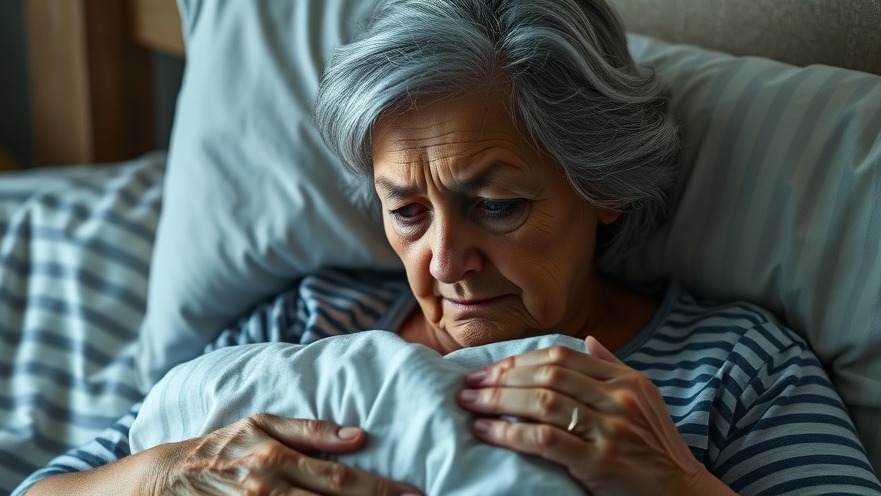
Understanding the Sleepless Epidemic Among Seniors
As we grow older, sleep can become more elusive, creating a domino effect on mental health. Studies show a high correlation between sleep disturbances and the escalation of depression amongst the elderly. This age group often struggles with insomnia, sleep apnea, or other issues that directly impair their ability to achieve restful sleep. Ensuring good sleep hygiene is vital; for many, it could mean the difference between a fulfilling life and succumbing to emotional despair.
Why Sleep Matters: The Science Behind It
Sleep serves as a crucial pillar for overall health, affecting everything from cognitive function to emotional well-being. A study in the Journal of Clinical Psychiatry emphasizes that seniors need 7 to 9 hours of good-quality sleep. Yet, many fail to accomplish this crucial amount, not because of a lack of desire but due to various age-related factors. This deficit leads to impaired memory, poor decision-making abilities, and an inability to regulate emotions. Simply put, inadequate sleep can aggravate feelings of sadness and anxiety, thereby worsening conditions like depression.
The Vicious Cycle: How Poor Sleep Fuels Depression
Depression and sleep disturbances create a vicious cycle—poor sleep can lead to depression, which in turn complicates sleep issues. According to evidence from the Mental Health Foundation, addressing sleep problems should be a frontline strategy in alleviating some types of depression. Mental health professionals assert that therapy strategies focusing on Cognitive Behavioral Therapy can effectively break this cycle, reclaiming the night for countless individuals.
Actionable Steps: Breaking the Cycle
Improving sleep habits is not merely a luxury—it's a necessity for mental health sustainability. Here are a few practical tips seniors and caregivers can adopt: follow a consistent sleep schedule, create a restful environment, limit caffeine and electronic device use before bedtime, and engage in relaxation techniques like deep breathing or mild stretching. These small changes can lead to substantial improvements in sleep quality and, by extension, mental health.
Conclusion: Prioritizing Sleep for Mental Well-Being
Recognizing the profound impact sleep has on mental health is crucial, especially for seniors. Improving sleep hygiene and addressing sleep disturbances is a vital step towards enhancing mental well-being. If you or someone you know is struggling, reaching out for professional support can make a world of difference. Don’t underestimate the power of a good night’s sleep—it could be the first step towards a brighter tomorrow.
 Add Row
Add Row  Add
Add 




Write A Comment